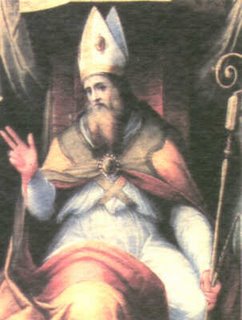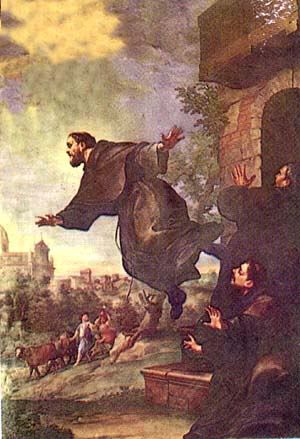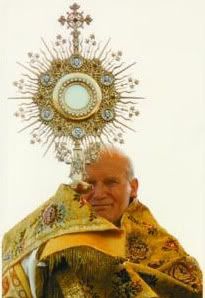St. Ambrose

Today, besides being an occassion for lots of pictures here at IVA, is the feast of St. Ambrose, Doctor of the Church. Ambrose was born in Gaul, probably in 340. Several French cities all claim to be his birthplace. The son of Roman Prefect of Gaul, he served as Bishop of Milan from 374 to 397.
Prior to his appointment, Milan had been convulsed by the Arian heresy, and the bishop there had oppressed the faithful with this heresy. Ambrose was actually at this point governor of Milan (he had been a government servant, not a cleric to this point), and when the heretic Auxentius died in 374, he went to the cathedral to oversee the election of a successor. However, the cry went up in the crowd to have Ambrose as bishop, and the bewildered consular found himself unanimously elected bishop. Ambrose was still a catachumen at the time (by the custom of the late empire, most people delayed their baptism until near to death), and thus was not even eligible for the episcopate. He earnestly attempted to avoid the appointment, but was compelled by emperor Valentinian to accept. He was baptised, and on December 7th ordained to the episcopate.
He proceeded to deed his temporal holdings (which were, as a result of his noble lineage, significant) to the Church. He then set about producing a vast body of learned writing and correspondance (notably with St. Basil) that reflected the impact of his substantial knowledge of Greek thought. This task is made even more remarkable by the fact that, having no previous clerical training, he taught and learned simultaneously. His preaching on the Church's esteem of virginity was especially forceful -- and it was said by his detractors that he was depopulating the empire through his successful teaching on the matter. However, as the Catholic Encyclopedia recounts, he contended, "and the experience of ages sustains his contention that the population increases in direct proportion to the esteem in which virginity is held. "
Ambrose was a great opponent of the Arians, and succeeded in driving them to extinction in what had been one of their greatest European strongholds. His contests with the great heresy are recounted both in his own writings and in the Catholic Encyclopedia article on him.
St. Ambrose died on Good Friday, April 4th 397, refusing the pleas of local envoys who came to him pleading that he pray for the aversion of his death. He was interred next to the relics of St. Gervasius and St. Protasius in Milan's cathedral, where he apparently lies still.
File Under: Saints








0 Comments:
Post a Comment
<< Home